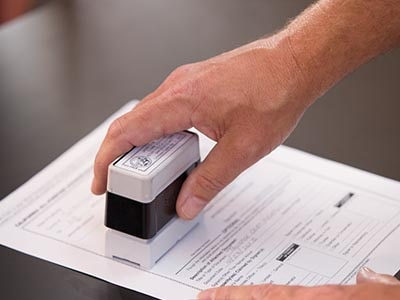Dealing With Deceased Estate Matters: Guidance Through Legal Proceedings
Dealing With Deceased Estate Matters: Guidance Through Legal Proceedings
Blog Article
Demystifying Notarial Work: Streamlining the Role and Relevance of Notaries
Their duty, often shrouded in mystery for several, brings considerable weight in making sure the credibility and integrity of vital records. By unwinding the complexities surrounding notarial techniques and losing light on the significance of their acts, a clearer understanding arises of the crucial role notaries play in supporting the material of legal and lawful agreements.
The Background of Notarial Work
Just how did notarial work advance gradually to become an integral part of lawful and business purchases? The history of notarial work days back to ancient human beings, where scribes played an important function in recording vital information and confirming files. As cultures progressed, the requirement for an extra formalized system to ensure the credibility of agreements occurred. This brought about the development of notaries, individuals assigned by the state to serve as objective witnesses in legal matters.
Throughout the Center Ages, notaries gained importance in Europe, with their features expanding to include preparing lawful files, licensing signatures, and maintaining documents. The rise of worldwide profession even more stressed the importance of notarial work in confirming agreements and agreements across borders.
In the modern era, notaries remain to play an essential duty in lawful and business deals by confirming identities, confirming the authenticity of records, and protecting against fraudulence. Their duty in licensing the validity of agreements includes a layer of protection and trust fund to the ever-evolving landscape of commerce and legislation.

Tasks and Duties of Notaries
Notaries play a crucial duty in verifying the authenticity of files and the identification of signatures. One of their key duties is to witness the finalizing of essential papers, such as actions, contracts, and wills, to make certain that all parties are entering right into agreements intentionally and voluntarily.
In addition, notaries are tasked with providing affirmations and vows, which are important in legal procedures and the implementation of testimonies. They license duplicates of original files, offering assurance to establishments that the copies are true replicas of the originals. Notaries should preserve exact documents of all purchases they look after to ensure transparency and responsibility. Generally, the tasks and obligations of notaries are important in securing the stability and validity of different papers and deals.
Notarial Certificates and Signatures
Exhibiting careful focus to information, notarial certificates and trademarks act as important parts in confirming the credibility of lawful papers. Notarial certificates normally consist of important information such as the date of registration, the names of the signatories, a description of the paper, and the notary's main seal. These certificates provide a clear record of the notarial act, ensuring that the paper can be quickly determined and traced back to the notary that managed the process.
Signatures play an essential role in notarial job, as they represent the arrangement and permission of the parties involved. Notaries thoroughly witness the signing of records to confirm the identity of the signatures and confirm that they are authorizing of their own free choice. By fastening their official seal and trademark to the document, notaries certify that the needed procedures have been followed which the document is legitimate and enforceable.
Fundamentally, notarial certifications and trademarks are the hallmark of authenticity in legal transactions, providing guarantee to all celebrations involved that the papers are reputable and binding.
Significance of Notarial Acts

Registration Process Described
The notarization procedure typically begins with the specific offering the record to a notary public. When the identity is validated, the notary makes certain that the individual authorizing the file does so voluntarily and without any type of threat.

Final Thought

Notarial certifications usually have crucial details such as the date of notarization, the names of the notaries, a summary of the file, and the notary's official seal. These certifications offer a clear record of the notarial act, guaranteeing that the paper can be conveniently recognized and mapped back to the notary that supervised the process.
By attaching their main seal and signature to the file, notaries accredit that the essential treatments have been complied with and that the record is enforceable and legitimate.
By validating the identity of the notaries, confirming their determination to enter into the contract, and accrediting the date and location of the finalizing, notaries play a crucial function in maintaining the credibility of legal documents.After the document is signed, the notary will fasten their main seal or stamp onto the paper.
Report this page